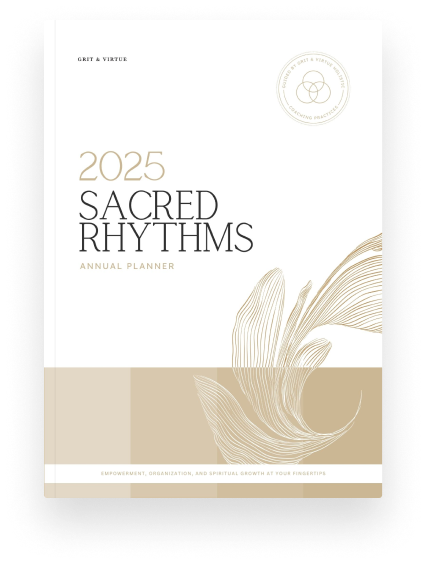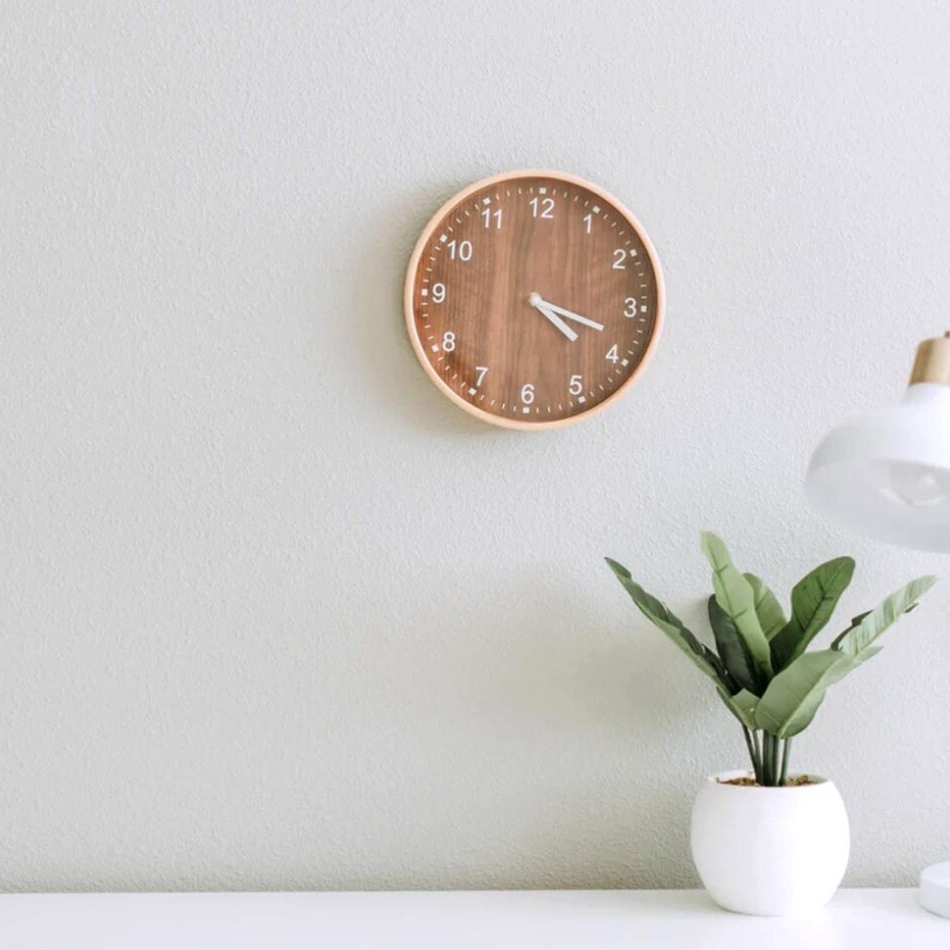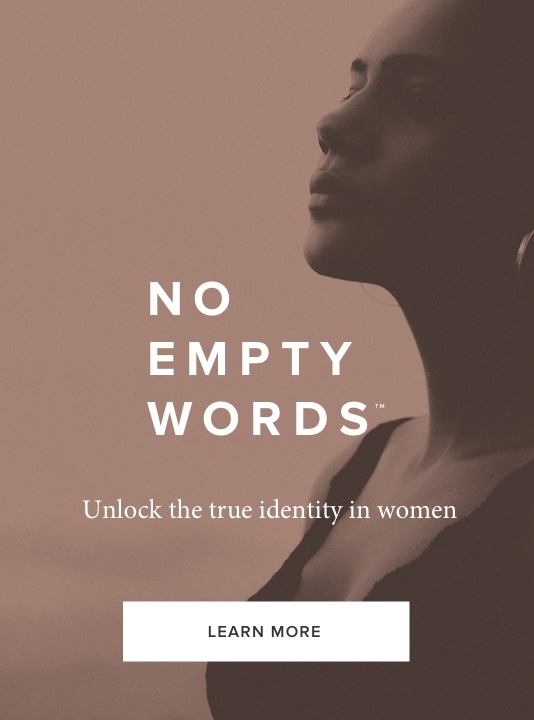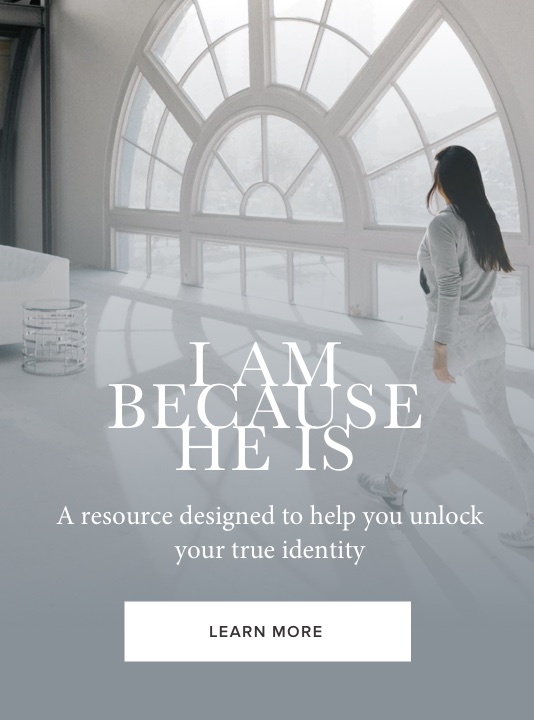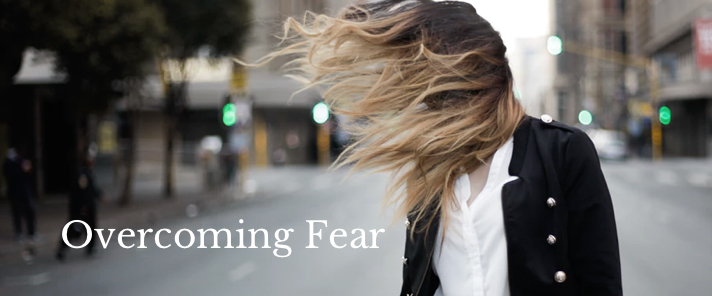There I was again, sitting in a tear-stained, oversized t-shirt.
The world was coming back together. My vision was less clouded. My pulse was beginning to slow down. My chest was lightening up.
But my mind, oh my mind, was filling to the rim with a new kind of heaviness.
Shame. Guilt. Condemnation.
As a believer who struggled with anxiety, specifically debilitating panic attacks, I just couldn’t process how I could love Jesus and have such a dark relationship with my thoughts.
Didn’t Jesus tell us not to worry? To simply “consider the wildflowers?”
Even though I love and know Jesus, why wasn’t this instruction to not worry ringing a bell when I couldn’t catch my breath during that fourth panic attack the week of my wedding?
Spiritual Battle of Anxiety
Honestly, the conversation around mental health seems to be pretty hit or miss in the church.
We hear plenty of well-intentioned pastors telling us to pray more about our problems. However, many of these same pastors have never found themselves struggling with anxiety personally.
While prayer absolutely is a weapon against this internal battle of anxiety, it is not our only defense strategy.
When we pray against our anxiety, but still find ourselves “coming up short,” it can be a pretty crippling cycle.
We feel like we’ve failed Jesus, we’re simply a “bad Christian,” or we’re just not strong enough.
These thoughts then proceed to send us into another anxiety-filled spiral.
“Well, I must be disappointing Jesus.”
“God must be so displeased with me.”
“He told me not to worry, but I still worry, so I guess my relationship with Him isn’t as genuine as the relationship of other Christians who don’t have anxiety.”
Wow, as someone who suffered from anxiety for over 5 years, these narratives were more common than I care to admit.
But after a few years of counseling and some specific trauma therapy work, I was able to identify the triggers of my panic attacks.
This recognition gave me enough mental space to begin to process what specific practices I could intentionally start incorporating in my life.
We Have Help
Here’s the honest truth: When we experience guilt, shame, and condemnation for wrestling with worry and anxiety as Christians, we are giving ourselves too much power.
What do I mean by this?
When we experience anxiety or have a panic attack, and then instantly start beating ourselves up for “not doing better,” we are communicating to ourselves that we are fighting this battle on our own.
Psalm 121:1-2 reminds us, “…Where does my help come from? My help comes from the LORD, the Maker of heaven and earth.”
We must acknowledge we have a Helper.
We have someone Who is eager to help us fight the war raging in our head.
When we spiral into guilt and shame after feelings of anxiety and worry, we also disregard grace. We communicate to ourselves we are unworthy of the free gift of grace Jesus died to give us.
Rather than sitting in condemnation, we would be so much better off extending the same kind of grace our Father extends to us.
Take a minute, and imagine what life would feel like if the next time you went down the worry blackhole of doom where your thoughts eventually reached the “Now God is disappointed with me again, there is no hope for me” place, you simply whispered, “grace” out loud.
This reminder allows us to remember “For our struggle is not against flesh and blood, but against the rulers, against the authorities, against the powers of this dark world and against the spiritual forces of evil in the heavenly realms.” (Ephesians 6:12, NIV)
Practical Steps for the Physical Battle of Anxiety
Stillness
Anxiety is a spiritual battle, to be sure. But it is also a physical battle.
We can probably both agree, this is where the conversation around mental health in the church gets cloudy.
Practical “how-to’s” don’t always find themselves in the middle of the sermons we listen to on Sundays, and that’s okay.
But as believers, we must recognize we are responsible for stewarding what we’ve been given in this life, to the best of our ability.
Our time, relationships, money, physical health, and yes, our mental health.
Paul is the hype-man for practical ways to steward our mental health.
In Romans 12:1, he reminds us to offer our physical “bodies as living sacrifices, holy and pleasing to God.”
Paul goes on to say in verse 2, “Do not conform any longer to the pattern of the world, but be transformed by the renewing of your mind.” (NIV)
I believe Paul is drawing the connection on how much influence our minds have for our overall health.
When we make time daily to renew our minds, we are stronger for it.
This time can look like 10 minutes every morning after you wake up. Journaling, spending time in prayer or reading Scripture.
Simply taking time to be still every day enables us to silence the noise and hurry of the outside world, and allow God to speak to us.
When we make room for God, we make room for His peace.
Gratitude
You know when someone tells you not to think about a pink elephant, you instantly think about a pink elephant?
The same can be said about anxiety.
What we look for is what we see.
Ask yourself the following challenging questions:
“Do I thrive on chaos?”
“Is my life really as bad as I feel like it is in this moment?”
“Do I want to be well?”
Personally speaking, whenever I would find myself in a panic attack, unable to breathe, it was always because I continued focusing on my negative thoughts.
I couldn’t quit the cycle.
Philippians 4: 8 says “Finally, brothers and sisters, whatever is true, whatever is noble, whatever is right, whatever is pure, whatever is lovely, whatever is admirable—if anything is excellent or praiseworthy—think about such things.” (NIV)
What if we stopped thinking about all of the bad, and began to have eyes to see the good?
We are promised in Philippians 4:6-7 if we give our thanks to God, we are met with His peace.
When we start practicing gratitude every day, we begin to not only see the good around us but also look for the good.
Whether you offer gratitude to God in prayer, journal things you are grateful for every day, or keep a note in your phone of things you are thankful for, gratitude softens our hearts.
Gratitude quite literally takes our eyes off of the pink elephant of anxiety, and onto the peace of the abundant life we have in Christ.
Filter the Noise
The final tip for practically fighting against anxiety is filtering the noise in your life.
It’s no surprise with the global pandemic and the rise of working remotely, our screen time consumption has risen dramatically.
While sure, social media gets a lot of hate in the conversation of mental health (and for good reason), it’s important to not only assess how much time we are spending on social media but media in general.
Netflix, podcasts, Instagram, online forums, Youtube…
We don’t know how to be bored. We have entertainment at the tip of our fingers at any given moment.
While these platforms definitely give us endless opportunities to learn new skills, meet new people, and create new art, they come with a cost.
Great marketing tricks our minds into believing we need the next new thing, now. And often, we can’t spend 10 minutes on a platform or device without engaging with an advertisement of some sort. Messages we didn’t intend to hear when we first hopped on, ping and ding us from every angle.
No wonder we feel so stressed.
By taking time to look at our daily inputs, we can assess what noise is influencing our narratives every day.
Maybe a little less Facebook, Amazon Prime, and news station of choice, would do our brains some good.
We have the choice to steward where we are spending our time.
—-
While anxiety and mental health are both mental and physical battles, this pursuit of peace is not lost.
The reality is, as believers, we have the greatest hope of the world.
Peace is not simply an experience or emotion we feel. Peace is a person we know.
When we steward our time, resources, and relationships to the best of our ability, we make room to encounter Peace, free from shame, guilt, and condemnation. One day at a time.
Enjoyed it? Share it!
Kimberly Mead
Kimberly is a wife, first-time mama, and joy and mindset coach. Through coaching, she empowers newlywed and married women to overcome fear and anxiety in their lives, pursue their God-given dreams, and take back their joy! Kimberly is also the host of The On-Purpose Bride Podcast. To check out more of her work, you can visit her website, kimberlymead.com.
But wait, there's more...








